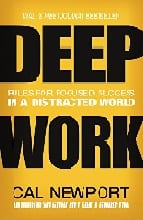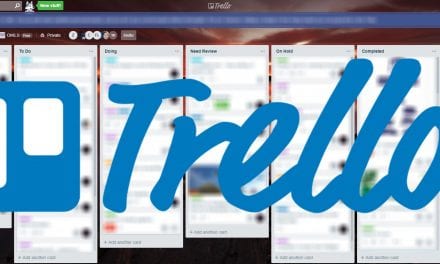Distractions overwhelm us in today’s technological age. The glowing Instagram Story circle, the tantalising Buzzfeed baking video – they both demand our attention. In the face of these temptations, how are we to get any serious work done? Picture this.
You are sitting at a desk, supposedly studying. But what are you actually doing?
| Deep Work | Shallow Work |
 |
 |
|
Work performed in a state of distraction-free concentration that is cognitively-demanding, creates new value and is hard to replicate. Example: Conducting research on the Pantheon for your Art History project |
Work performed while distracted that is non cognitively-demanding, does not create new value and is easy to replicate. Example: Scrolling through your Instagram feed |
Understand that Deep Work accomplishes more than Shallow Work.
There is scientific proof that Deep Work works.
1. It improves brain efficiency.
Deep Work causes myelin to develop in the brain. Myelin is a white tissue that develops around neurons to allow brain cells to fire faster and deeper. Essentially, Deep Work upgrades your brain by helping specific brain circuits operate more effortlessly and effectively. As a result, we can connect ideas more rapidly to uncover more creative solutions.
2. It makes us happier.
According to Hungarian Psychiatrist Mihaly Csikszentmihalyi, getting in ‘the zone’ can actually bring you happiness. By creating ‘concentration so intense’, ‘there is no attention left over to think about anything irrelevant, or to worry about problems’. To Csikszentmihalyi, the time spent completing an assignment can actually bring you more happiness than free time. Jobs (or assignments in our case) present structured challenges that encourage us to lose ourselves in our work, whereas free time, being unstructured, requires extra effort to be shaped into something that can be enjoyed.
In other words, Deep Work upgrades your brain and makes you happier! Now, how do we begin?

Get Deep Work-ing.
It’s not hard. Let’s start small. Here is a mini-guide to help you.
- Pick out specific time slots during your week to dedicate to Deep Work.
For those just starting out, the suggested is a maximum of 1 hour a day. - Pick a quiet, distraction-free location.
There are multiple libraries on-campus that are quiet and distraction-free. - Set rules.
Adjust them to your tolerance level. Examples include: no phone on table, no chatting with friends, finish up a problem before taking any breaks - Prepare rechargers.
Have coffee on hand or schedule a break for jumping-jacks.
You now have a Deep Work plan. Everyone’s plan is different. Here is a sample of what one might look like.

Original Photo by rawpixel.com from Pexels. White words by Kelsie Tan.
You are now on your way to greater productivity! Curious if it actually works? Check out Ran Segall’s Deep Work experience here:
While Deep Working may not work for everyone, it’s definitely a great place to start. All the best!
For more on Deep Work, check out the following resources:
Book

Deep Work: Rules for Focused Success in a Distracted World by Cal Newport
Available in NTU Library, and on OverDrive
Video summaries of book







